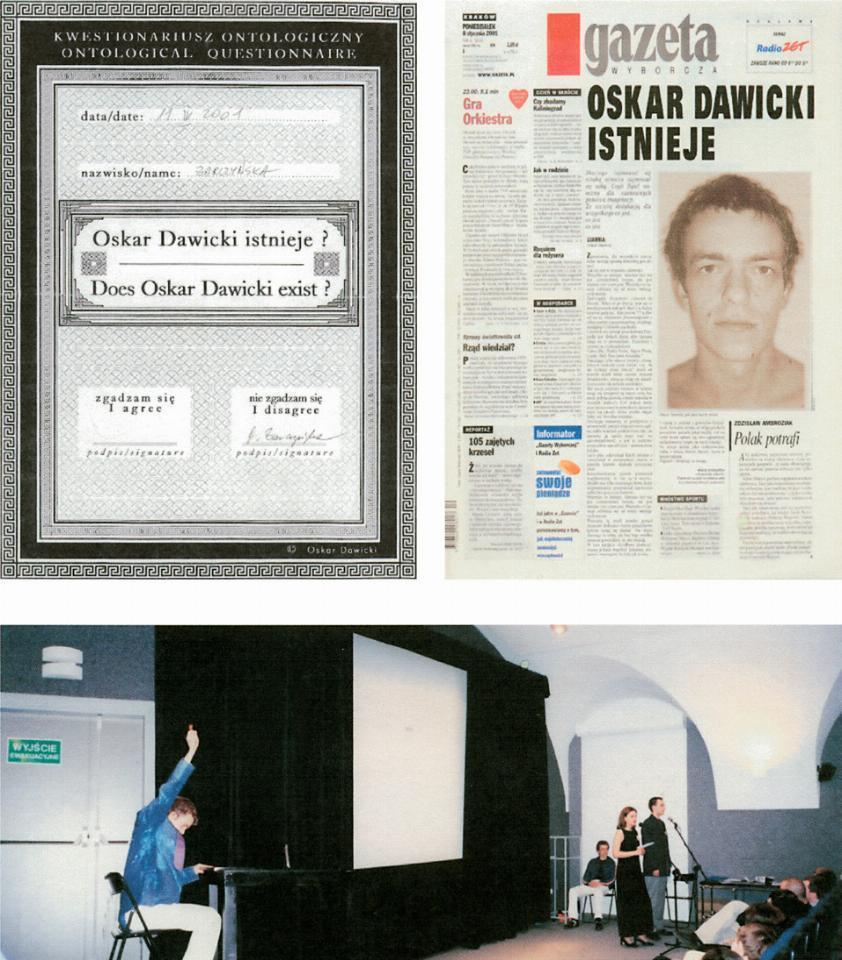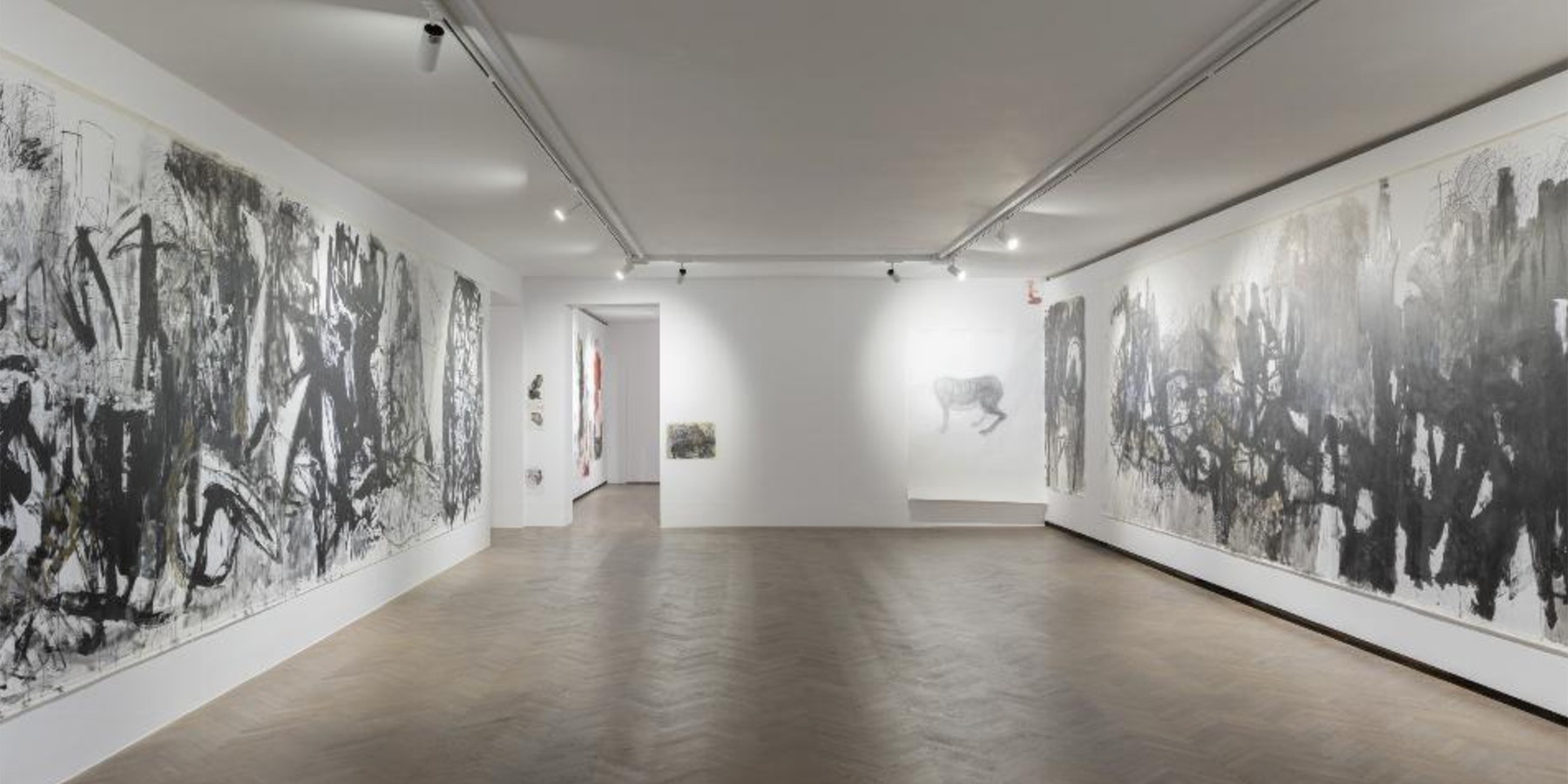Oskar Dawicki
Master’s Thesis
Oskar Dawicki
Master’s Thesis, 2005, print on foam, 64 elements, size A4; 3 copies of a bound master’s thesis, size A4, 64 pages, 6 illustrations
Collection II of the Arsenal Gallery in Białystok. Work purchased by the Podlaskie Association for the Promotion of Fine Arts

The identity of an artist is one of the fundamental themes debated by Oskar Dawicki in his actions. The question of self-definition is the core of a large group of works in which the artist is looking at himself through other people’s eyes. His search for reliable information concerning himself and permitting him to construct his own portrait involved commissioning various actions from individuals who were mostly unaware of their role. He had his likeness painted by street portraitists in various cities of Europe (Street Portraits, 2003). These souvenir portraits – technically sound, if executed in traditional conventions – show Dawicki as a different person each time. In a 2002 performance, he commissioned a detective agency to follow himself. The result of this project, codename “O”, was the detectives’ report with a characterisation of the artist.
Master’s Thesis is situated in the same trend of Dawicki’s research. Anonymously, through the Internet, Dawicki commissioned an MA thesis from a “professional” writer of scholarly dissertations. Jan Wallenrod, whose name stands on the title page as the author of the thesis The Identity of a Contemporary Artist on the Example of the Oeuvre of Oskar Dawicki, is a fictitious person. The 64-page dissertation with full critical apparatus reveals the image of the artist viewed through philosophical approaches to the issue of identity, and his actions are interpreted in the context of other works of art. In the course of the argumentation, the “detective project” is compared to the famous portrait Las Meninas by Diego Velázquez, and the complex issues associated with individuality are analysed by means of references to the assumptions of Michel Foucault and Emanuel Lévinas. All in all, the thesis renders an image of Dawicki situated in the framework of academic discourse.
Master’s Thesis constitutes a commentary of a performer viewing his own image as if in the distorting mirror. The identity not so much crystallises in the collected material, but multiplies and grows blurred. Shown to the public at exhibitions, it appears to be an image created by others, autonomous from its model, who thus becomes even more impossible to ascertain. Dawicki’s work may be understood as an ironic statement concerning the way an artist functions in the circulation of art, when his person is incessantly constructed by the media, curators, scholarly discourse and, finally, himself. In addition, Master’s Thesis provides an excellent chance of taking a closer look at the scholarly (or, perhaps, pseudo-scholarly) debate as such. In a maze of the often hermetic references and comparisons, art and the person of the artist seem to be removed to a farther plane, increasingly distant – especially due to the obscure language of the argumentation – from the recipient.
Izabela Kopania
translated from Polish by Klaudyna Michałowicz

PLAN YOUR VISIT
Opening times:
Thuesday – Sunday
10:00-18:00
Last admission
to exhibition is at:
17.30